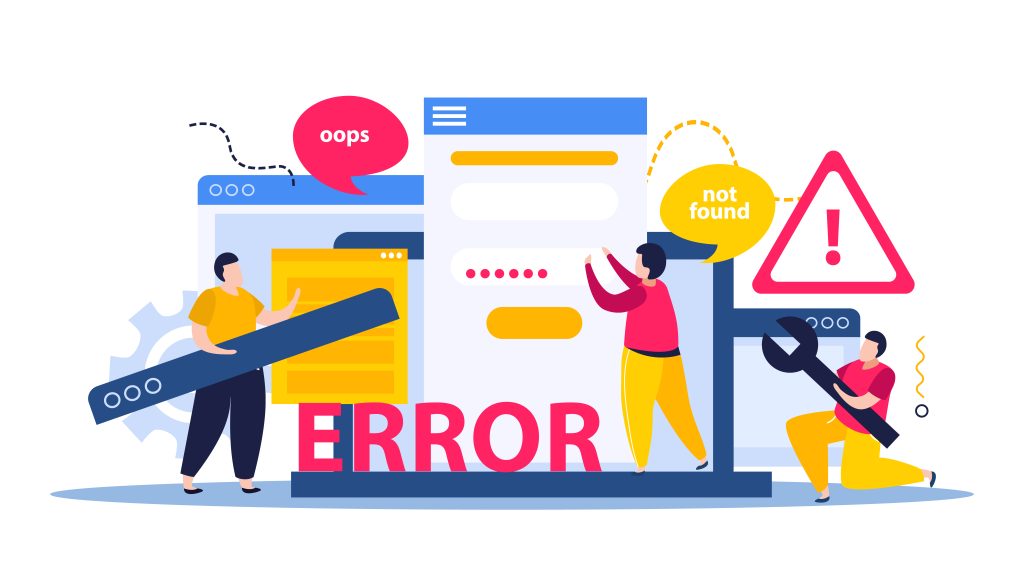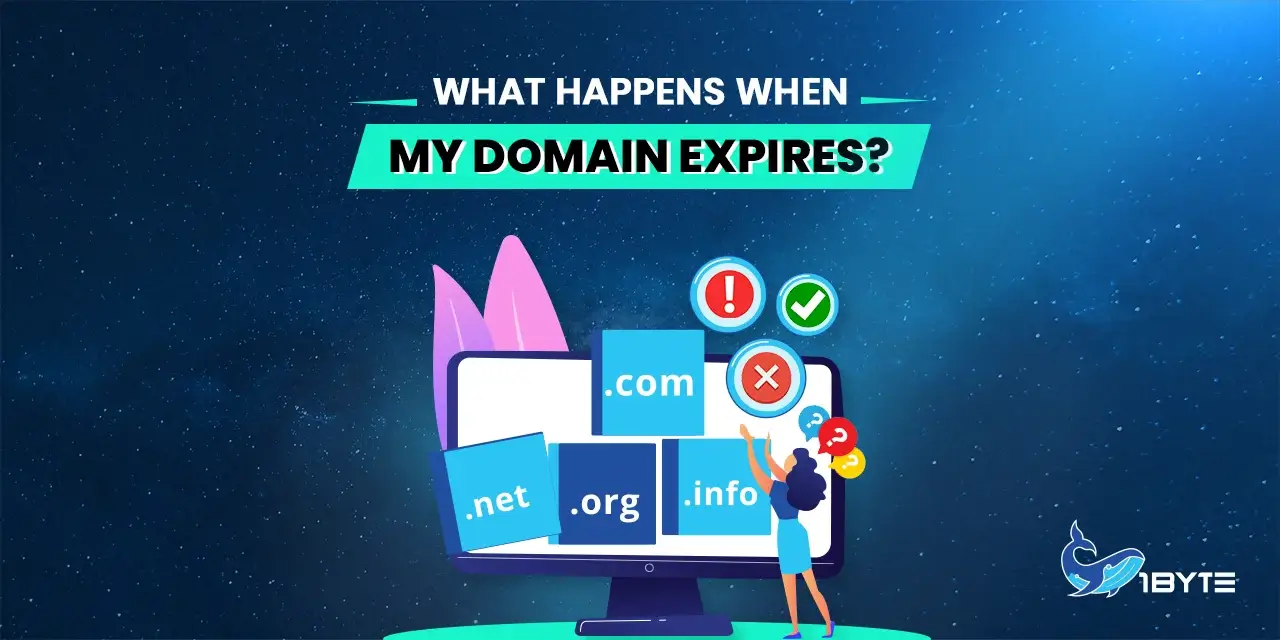When a domain expires, it becomes unregistered and is no longer active. The domain owner will lose all websites and emails associated with the domain. Additionally, the domain may be auctioned off to the highest bidder if it is not renewed in time. To avoid losing a domain, it is essential to set up renewals well in advance. In this blog post, we’ll discuss what happens when your domain expires and how to prevent it from happening. Stay tuned for more helpful tips!
Expiration timeline
The day before the expiration
Your domain registration is about to expire. The day before, registrars will typically send you a flurry of messages, notifying you that your domain is going to expire. You can renew it or set it up for auto-renewal
Expiration date
The domain’s expiration date is important because if you do not renew it by that point, then your name will enter a renewal grace period. You can either choose to renew the domain or set the domain up for auto-renew.
Day 1 after expiration
The domain will be deactivated and “parked,” meaning that its registration has expired. Other services affiliated with the domain may cease to operate. You can renew the domain or set it to auto-renew.

Day 30 after expiration
The grace period will end, and the domain name will be put up for an expired domain auction. If someone else bids and wins the bid, they’ll take over ownership of your old website! You can renew or set it so that you’re always eligible by paying just one fee every year with no extra cost involved – this is called “auto-renewal.”
Day 40 after expiration
Auctions will end. If auctions end with no bidders, your domain name will be returned to the domain registry. During this time registered as a registry grace period, you can pay a redemption fee in addition to the registration renewal fee to restore the registration.
Day 42 after expiration
If the grace period for domain expiration expires, domain names registered during this period will be returned to the registry, giving the owner no option for the publication or the domain name to be recovered. Your last chance would be re-registration through general registration, but you’re unlikely to find any services or value left behind from when this was first registered in case there were associated fees involved beforehand–the clock is ticking!
What Happens to Expired Domain Names?
Once a domain name expires, it enters a grace period that lasts for about 30 days. During this time, the owner still has the opportunity to renew the domain name. If the domain name is not renewed, it will then enter a redemption period. During this time, the owner can still renew the domain name by paying an additional fee. However, if the domain name is not renewed during the redemption period, it will be available for anyone to register. In other words, expired domain names are eventually deleted and made available for new website owners. As a result, it’s important to keep track of your domain name’s expiration date and renew it in a timely manner to avoid losing it.
Recommended reading: How to Choose a Domain Name for Your Business?
How Does a Registrant Know When Their Domain Is About to Expire?
- It’s important for registrants to keep track of when their domain is set to expire. If a domain expires, the website associated with it will go offline and any email accounts using that domain will no longer work. There are a few ways to keep track of when a domain is set to expire.
- One way a registrant may know their domain is about to expire is by checking their Domain Expiration Date. The WHOIS database is available for anyone who needs to know the expiry date of their domain. It includes registrant contact details, when it was purchased, and whether or not there are any legal wrinkles against them in regards to registering this specific top-level domain name (TLD). Another way to find this expiration date is by checking the registrar’s website where the domain was purchased. Another way to find this expiration date is by checking the registrar’s website where the domain was purchased. The registrar will send reminders to the registrant’s contact email address on file about the impending expiration.
- Finally, some domain name providers offer a service called Domain Expiration Protection, which will automatically renew a domain name before it expires. This option typically costs an additional fee but may be worth it for registrants who want to avoid the hassle of manually renewing their domains. By keeping these methods in mind, registrants can be sure to stay ahead of their domain’s expiration date.

Can the Original Registrant Renew Expired Domains?
Once a domain name expires, the cycle known as the domain name expiration process begins. The first stage is when the domain is deactivated, which means that the website and email associated with it are no longer active. The second stage is when the domain is put up for auction by the registrar. The third stage is when the domain is finally deleted from the registry.
The original registrant can renew an expired domain at any time during this process. If the domain has already been auctioned off, the original registrant may not be able to get it back. However, if the domain has been deleted from the registry, they may be able to claim it again.
When and How Can a New Registrant Buy Expired Domains?
A new registrant can purchase an expired domain through a registrar, auction site, or private sale. After the grace period expires, the domain is typically put up for auction. Auction sites allow interested buyers to bid on domains in an effort to purchase them at a lower price. Private sales are another option for purchasing expired domains. In a private sale, the buyer and seller agree on a price and complete the transaction without involving a third party. Private sales are often conducted through forums or online marketplaces
What Does Pending Delete Mean?
When a domain name is “pending delete,” it means that the domain name has been deleted from the registry and is in the process of being purged from the DNS servers. This usually happens when a domain name expires and is not renewed by the owner. Once a domain name is in pending delete status, it cannot be renewed or restored. The domain name will eventually be made available for registration by anyone after it is purged from the DNS servers, which can take up to 45 days. In the meantime, the previous owner may still be able to renew the domain name if they act quickly.
Can a Registrant Delete Their Own Domain?
Domains aren’t erased in the sense that they don’t wholly cease to exist, but some registrars allow registrants to terminate the registration of their domains. Other registrars don’t allow registrants to end their registration until the domain name expires naturally. In both cases, the domain will usually be put up for auction thereafter.
What Happens if an Expired Domain Is Not Purchased?
The expired domain could be returned to its original registry after a certain amount of time, but the domain will not be available again until the Registrar chooses to bring it back.
Conclusion
Domain expiration can have serious consequences for your business. If you don’t renew your domain in a timely manner, it will expire and be made available to the public. This means that anyone could purchase it and use it for their own website – or worse, they could redirect your customers to another site. Make sure you are aware of when your domain is set to expire so you can renew it in time.
Ensure you never lose a domain with 1Byte’s domain auto-renew! Basically, once you activate your domain to auto-renew in the domain user dashboard and select a payment method, our auto-renew system will take care of your domain renewal for you. Either you select a payment method with credit/debit visa/master card or 1Byte wallet credit, our systems will keep you up-to-date and alert you if inadequate funds are available
Read more:

